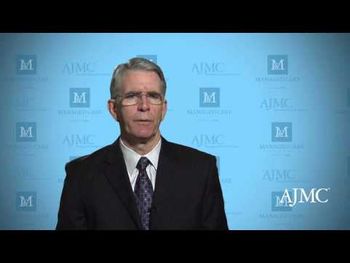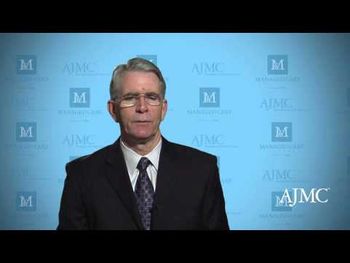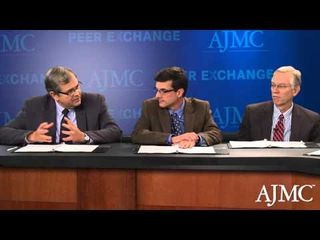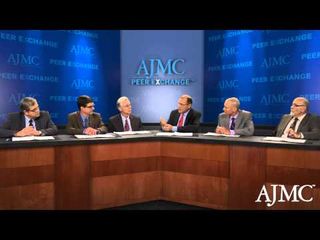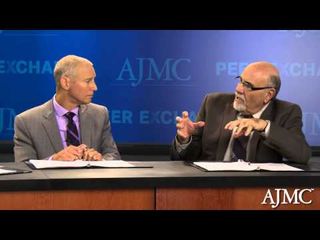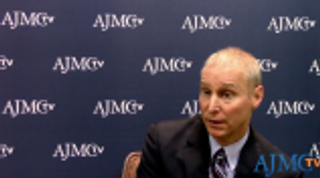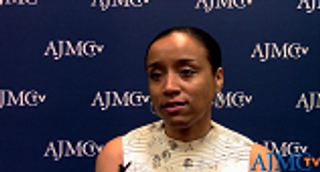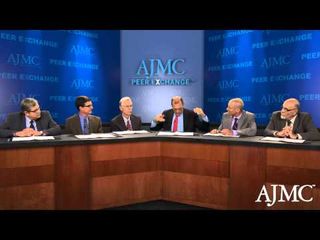
Value-Based Care
Latest News
Latest Videos

CME Content
More News

Medicare overpaid physicians $6.7 billion in 2010 for evaluation and management services, HHS' Office of Inspector General said in a study released Thursday.

Physicians are wary of new healthcare payment models emphasizing quality and efficiency metrics, but hospitals are likely to prove resilient.


As part of a contract extension with Tenet Healthcare, Cigna has established a first of its kind quality-based reimbursement agreement.
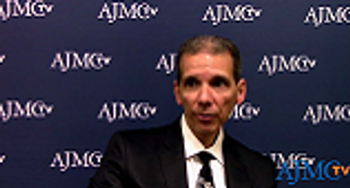
Anthony Slonim, MD, DrPH, CPE, FACPE, executive vice president, chief medical officer, at Barnabas Health says that being a member of The American Journal of Managed Care's ACO and Emerging Healthcare Coalition is valuable.

In an era of heavy-duty strategies and tough decisions, one healthcare expert urged providers to consider the accountable care organization (ACO) as part of their future.

NCCN Guidelines Updates

Three major insurers are partnering with a not-for-profit group to provide consumers with greater access to healthcare cost information, the group announced Wednesday morning.

The CMS has canceled its first scheduled round of end-to-end testing for ICD-10 in the wake of a recent, one-year reset of the compliance deadline to Oct. 1, 2015, according to knowledgeable sources.

Final rule reduces burdens to critical access hospitals, rural clinics; loosens physician supervision requirements.

Wayne J. Katon, MD, professor of psychiatry, director of the division of health services and epidemiology, and vice chair of the department of psychiatry and behavioral sciences at the University of Washington Medical School, says that people with psychiatric illness in primary care settings cost the system twice as much as those without mental illness. Comorbidities such as depression can add to those costs.

Roger Kathol, MD, president of Cartesian Solutions, Inc, and professor of internal medicine and psychiatry at the University of Minnesota, says that health reform presents several opportunities for psychiatrists.

Only 50 physicians and 4 hospitals that enrolled in the federal electronic health record (EHR) incentive payment program have reported achieving Stage 2 meaningful use of EHRs. Officials from the Centers for Medicare & Medicaid Services (CMS) said that due to these low numbers, many participating practitioners who did not achieve Stage 2 risk having their Medicare reimbursement payments lowered at the end of 2014.

Since the Obama administration launched its accountable care initiative as part of healthcare reform in 2012, the CMS has announced which hospital and physician networks in one of the programs have met cost targets and received shared savings. But so far, it has published little data on quality of care delivered by these networks, which were designed to deliver better care as well as lower costs for Medicare patients.

The Obama administration says the number of Medicare patients returning to hospitals within 30 days fell further in 2013, amounting to 150,000 fewer readmissions since January 2012.

Steven S. Sharfstein, MD, president and CEO of Sheppard Pratt, says that patients with mental illness who are insured under Medicare or Medicaid will feel the effect of health reform in terms of cost control and quality-focused care.

Wayne J. Katon, MD, professor of psychiatry, director of the division of health services and epidemiology, and vice chair of the department of psychiatry and behavioral sciences at the University of Washington Medical School, says that the type of patient a primary care physician sees can vary depending on the type of insurance the person has.

States did little to improve healthcare access, quality, costs and outcomes in the past five years, according to a Commonwealth Fund report. Researchers examined 42 health indicators between 2007 and 2012, and found that in many states, access and affordability of healthcare actually declined among adults younger than 65. Healthcare spending rose $491 billion, reaching $2.8 trillion nationally.


